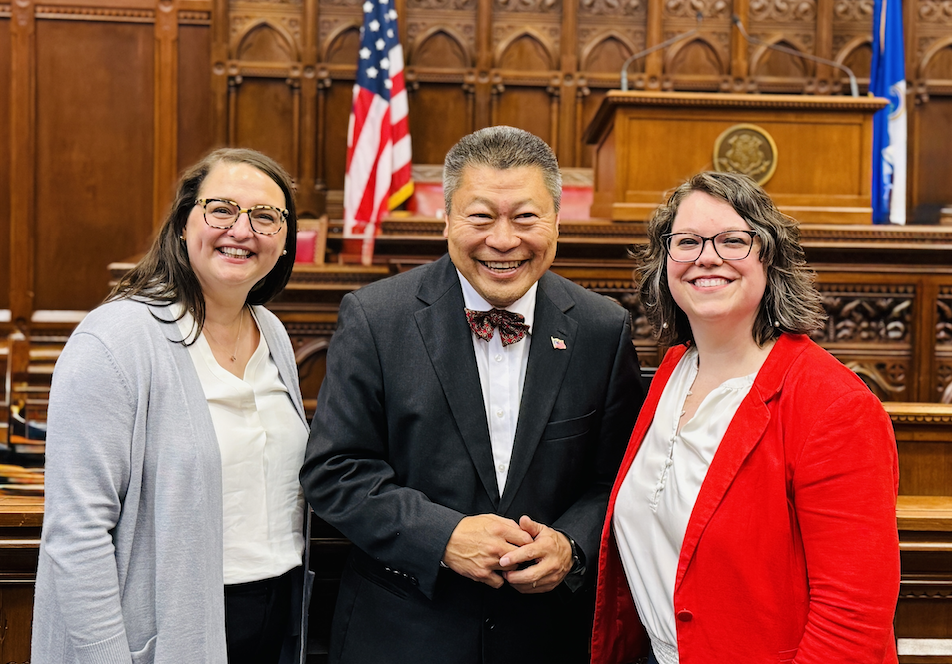
HARTFORD, CT – In a milestone for Connecticut’s libraries and communities, the General Assembly has passed Senate Bill 1234, An Act Making Certain Terms in Electronic Book and Digital Audiobook License Agreements or Contracts Unenforceable. The bipartisan bill, championed by Senator Tony Hwang (R-Fairfield), now awaits Governor Ned Lamont’s signature.
This legislation marks a major shift in how public libraries can license digital content, moving away from restrictive, cost-prohibitive contracts and toward a more equitable, transparent model. The bill is designed to curb exploitative e-book pricing practices, promote digital access, and ease financial burdens on local municipalities and taxpayers.
Digital content is no longer a luxury, it’s a necessity,” Senator Hwang said. “Libraries are the great equalizer in our society. This legislation strengthens their role in delivering knowledge, dignity, and opportunity to all and does so in a way that’s fiscally responsible and legally sound. This bill promotes fairness, transparency, and access. It balances federal intellectual property protections with smart contract reforms, ensuring that our libraries, supported by local taxpayers, can affordably serve all residents, regardless of income, background, or zip code.”
The legislation includes a trigger clause (Amendment A, LCO 8035): it will take effect once states with a combined population of at least seven million adopt similar measures, ensuring Connecticut doesn’t act in isolation but leads a national movement.
Ellen Paul, Executive Director of the Connecticut Library Consortium, celebrated the bill’s passage: “I have been working with Senator Hwang for the last four years on this bill and I am just overjoyed that we finally got it across the finish line. This is not just a victory for libraries, but for communities and readers across the state of Connecticut. We will now finally be able to negotiate fair and reasonable contracts with publishers.”
Scott Jarzombek, President, CT Library Association, “This is a major win for libraries and taxpayers. It will allow us to spend less on restrictive digital licenses and more on programs, services, and activities that benefit our communities. We look forward to fair negotiations with publishers and a more sustainable future for public libraries.”
The bill addresses longstanding inequities in digital licensing. Under current terms imposed by the “Big 5” publishers, libraries pay up to five times more than consumers for an e-book, only to lose access after 26 checkouts or two years. These terms waste taxpayer dollars and hinder access for seniors, students, and underserved communities.
By focusing on contract law instead of copyright, SB 1234 avoids the legal pitfalls that derailed similar bills in other states. It empowers libraries to negotiate fairer terms, operate with greater transparency, and better serve the public good.
“Our libraries have adapted to the digital age, it’s time the law caught up,” Hwang concluded. “SB 1234 ensures our libraries can provide the resources our residents need to read, learn, and grow, without being shackled by unreasonable and secretive contracts. It’s a smart, sustainable win for education, equity, and economic responsibility.”